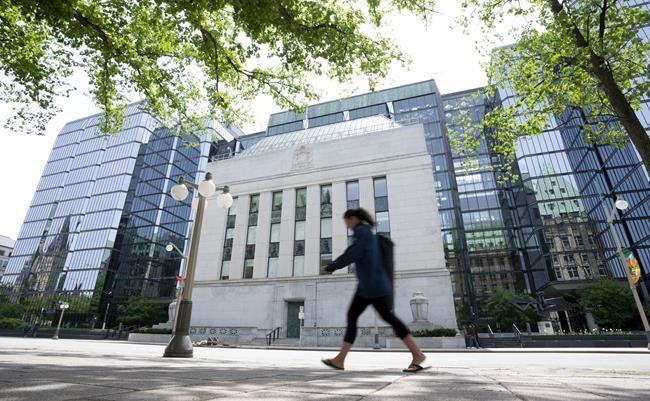OTTAWA — After watching to see whether its aggressive rate hike path were enough to quash inflation, the central bank has opted to raise interest rates again — fuelling speculation that another rate hike is in the cards for July.
The central bank announced a quarter of a percentage point rate hike on Wednesday. The rate increase brings its key interest rate to 4.75 per cent, the highest it’s been since 2001.
The decision to raise interest rates comes after speculation among economists and forecasters that ongoing strength in the Canadian economy would push the central bank to hike rates again, though many expected it would wait until the summer before pulling the trigger.
Royce Mendes, managing director and head of macro strategy at Desjardins, said the rate hike isn't too surprising given economic indicators released since the last rate decision suggest the economy is still overheated.
"It makes complete sense that if the bank thought it needed to raise rates, it should do so earlier, rather than later," Mendes said.
Excess demand in the economy appears to be more persistent than the bank previously anticipated, the rate announcement said, citing a tight labour market, better-than-expected economic growth in the first quarter as well as “surprisingly strong” consumption growth.
Inflation also came in hotter than expected in April, the central bank said, noting prices for a “broad range” of good and services rose more than anticipated.
Still, Mendes criticized the central bank for not communicating its intentions clearly ahead of time. Notably, governor Tiff Macklem didn't seem overly concerned about the rise in inflation in April during a news conference last month, he said.
"The Bank of Canada should be doing a better job of communicating their intentions to the (financial) market," Mendes said.
Though the Bank of Canada had little to say about its future plans, many forecasters like Mendes are now convinced that another rate hike is coming in July.
"We continue to lean towards another 25 basis point rate hike at the next rate decision, only because I don't think the bank will have seen enough progress towards restoring price stability before that date," he said.
But not everyone is convinced raising interest rates further is the right move.
Western University economic professor Stephen Williamson said he didn't expect the central bank to announce a rate hike on Wednesday, and doesn't think raising rates in July would make sense either.
"If I were them, I would have just stayed at four and a half per cent and wait (to) see some more data," he said.
Williamson said the Bank of Canada appears to be making policy decisions on the assumption that there's a trade-off between inflation and the unemployment rate. However, inflation has managed to fall significantly without employment falling, he noted.
"Their whole narrative is about is... maybe (high interest rates will) make unemployment go up, but that's just the pain we have to bear to bring inflation down," Williamson said.
"Well, inflation has come down a lot with, in fact, an unemployment rate lower than it was in January 2020."
Statistics Canada is schedule to release employment figures for May on Friday.
Earlier in the year, the Bank of Canada announced it would pause its aggressive rate-hiking cycle that began in March 2022. The central bank appeared cautiously optimistic that interest rates might be high enough to quash inflation, although it stressed that the pause was conditional on inflation falling and the economy softening.
Since then, incoming economic data has continued to surprise forecasters who had anticipated the economy to stall by now. Despite elevated interest rates making borrowing more expensive for consumers and businesses, businesses are still hiring, and consumers continue to spend.
And even as the population grows rapidly, new workers have been absorbed quickly into the labour market, keeping the unemployment rate at five per cent for five consecutive months. That’s just above the all-time low of 4.9 per cent reached last summer.
On the inflation front, price growth has slowed significantly since peaking at 8.1 per cent last year. However, the annual rate ticked up slightly in April to 4.4. per cent, marking the first rise in inflation since the summer.
The central bank says it still expects inflation to fall to about three per cent in the summer, but with core inflation still elevated its concerns about inflation getting stuck above two per cent have increased.
This report by The Canadian Press was first published June 7, 2023.
Nojoud Al Mallees, The Canadian Press



